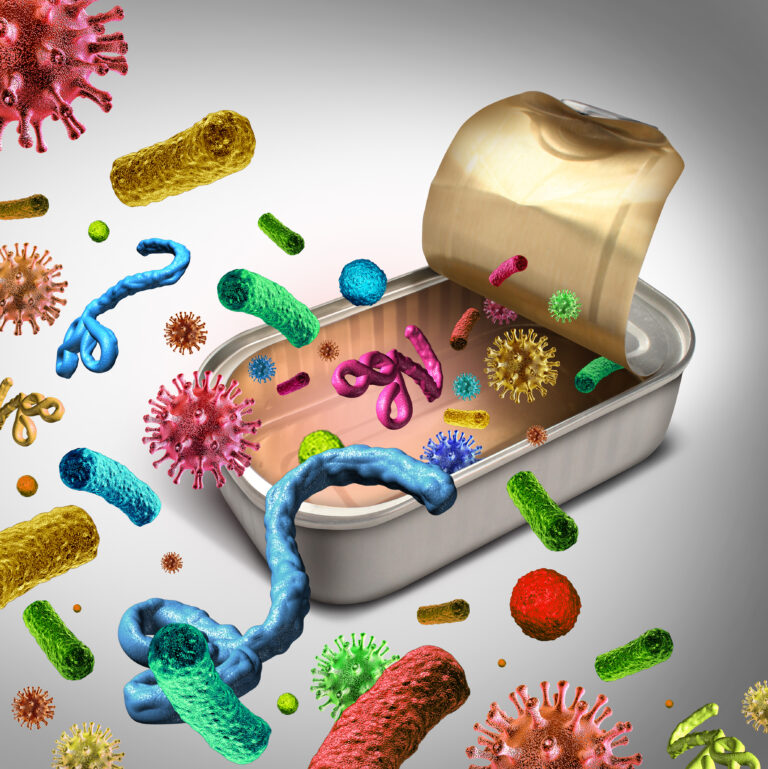WGS Proves to Have Significant Benefits for Food Safety – and Public Health
With its ability to link foodborne illnesses across space and time, whole genome sequencing (WGS) has proven to be a significant move forward for the improvement of public health. Yet WGS remains a challenge for many in the food industry as it enables outbreaks to be more easily linked to detected pathogens in facilities – even months or years later. Forward-looking food companies understand the benefits of using WGS but are nevertheless fearful of regulators gaining access to their data and implicating them in outbreaks for which they have no part.
Having created the GenomeTrakr Whole Genome Sequencing (WGS) Network in 2013, with all key project milestones completed in 2018, FDA has estimated that the program was proven to be cost-effective by its second year of implementation and is continuing to generate hundreds of millions of dollars in health benefits.
GenomeTrakr is a scientific tool that helps FDA detect, investigate, and limit the spread of foodborne illness outbreaks and is used globally by federal, state, hospital, and other labs for pathogen identification. Earlier this month, FDA published a study on the effectiveness of the program, using data from 1999-2019 on outbreak illnesses for three pilot pathogens (E. coli, Listeria, and Salmonella) that were investigated by the FDA. The study showed that:
- The program is generating $100 million to $450 million in net annual health benefits at current funding levels.
- It helped decrease foodborne illness in the U.S. within the first year after launch.
- For each additional 1,000 WGS isolated sequences added to the database for a given pathogen, there is a reduction of approximately 6 illnesses per year associated with that pathogen.
- Illness numbers of heavily sequenced pathogens are falling faster relative to non-sequenced pathogens and observed outbreaks related to WGS source tracking program pathogens are getting smaller.
One area TAG found to be unexpected in our review of the study was the brief mention in the conclusion that “WGS source tracking has had a significant value in the battle against COVID-19.” Noting that the benefits of the program are applicable to COVID-19 and other infectious disease control applications, the analysis demonstrates that incorporating WGS source tracking may provide positive public health benefits even in the early stages of implementation. Thus there could be applications for getting out in front of future endemics or pandemics.
Overall, the benefits of WGS and the GenomeTrakr are expected to continue to grow as the database continues to grow. Additionally, once the program is fully implemented, the authors project that net benefits could measure in the billions of dollars. It also is expected that the economic benefits detailed in the study will help drive WGS surveillance on the global level. The marginal effect may vary for different countries and regions, but the study provides strong evidence for a significant improvement in food safety anywhere WGS source tracking is implemented.
TAG has been advocating WGS for years, even while understanding the hesitation of food facilities to use a testing application that could come back to haunt them years later. Once a strain is put into the database, it can be used for comparison against any former or future WGS positive, potentially connecting your facility with an outbreak or recall – past or future. It also could be used as an indicator of a resident pathogen in your facility if a second FDA investigation finds the same strain in your plant at a future date.
While it is important to know if you have a resident strain and then work hard to find its source and remove it, the FDA’s view of resident strains is that it throws your whole Environmental Control Program into question, along with any products you made during the time frame of the resident strain. WGS is unquestionably a powerful molecular tool that has benefitted public health, but when products are connected to illness using WGS it is critical to ensure that the epidemiology and exposure history match as well before regulatory actions are contemplated.
The food industry continues to struggle with when and how to use WGS, but it is the very same facts that haunt a facility that can save them from a massive recall, extensive consumer illness, or even deaths, by detecting a pathogen sooner or identifying it as resident. And given the proven benefits of WGS and the GenomeTrakr on food safety and public health, should any of us allow a fear of regulatory to keep us from using the best technology?
Regulators clearly understand the value of WGS as well as the conundrum the industry faces on how best to use this powerful public health tool as a preventive control. But so far, FDA has not addressed this real industry fear. Until they do, this tool will stay in the toolbox more than it should.





